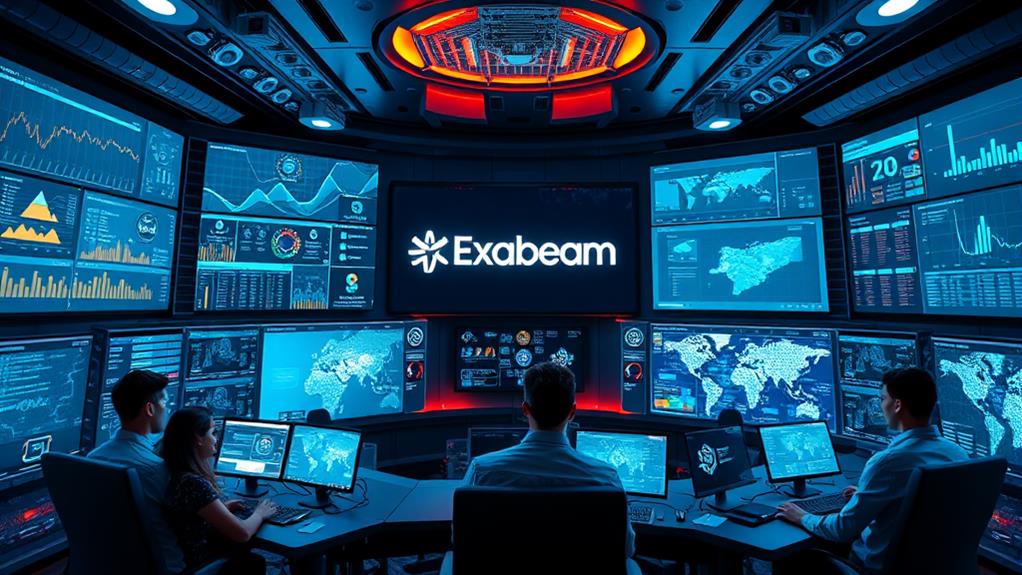Isn't it fascinating how a well-structured Content Management System can be the backbone of your online presence? By leveraging a CMS, you can streamline your content creation and distribution processes, making it easier to engage your audience effectively. Yet, many overlook the nuances that can enhance their CMS experience from basic to exceptional. Comprehending the essential features and the right choices can greatly influence your digital strategy. So, what are the key elements that can help you harness this potential?
Understanding Content Management Systems
Comprehension of Content Management Systems (CMS) is essential for businesses aiming to streamline their online presence.
By leveraging CMS benefits, you can effortlessly manage various content types, improving your user experience. This software enables you to create, edit, and publish content without needing coding skills, allowing for greater creativity and freedom.
A user-friendly interface strengthens your team, reducing reliance on technical staff and speeding up the content creation process. Additionally, analytics tools integrated within many CMS platforms allow you to track engagement and refine strategies based on real data.
Ultimately, grasping how to effectively utilize a CMS not only simplifies operations but also improves your website's overall effectiveness in reaching and engaging your audience.
Different Types of CMS
When exploring the different types of Content Management Systems (CMS), it's vital to understand how each option can align with your specific needs and goals.
Open Source CMS platforms, like WordPress, offer considerable benefits, including flexibility and a vast community for support. However, you might face proprietary challenges with closed-source systems, which can limit customization and control.
On the other hand, headless CMS solutions provide unmatched flexibility, enabling you to deliver content across various platforms without being tied to a specific frontend.
If you have unique requirements, custom solutions can be developed to cater specifically to your organizational needs.
Essential Features of a CMS
A robust Content Management System (CMS) is vital for effectively managing your online presence.
You'll want features that enable you, such as user roles and permissions, guaranteeing secure content approval processes.
Look for mobile optimization, as a noteworthy portion of your audience accesses content on their devices.
Incorporating SEO strategies is key for visibility; a good CMS will support these seamlessly.
Analytics integration helps you track performance metrics, facilitating data-driven decisions.
Design customization allows you to express your brand's identity while scalability options guarantee your CMS grows with your business.
Overview of Popular CMS Platforms
Three of the most popular Content Management Systems—WordPress, Joomla, and Drupal—each offer unique strengths that cater to different user needs and preferences.
In CMS comparisons, WordPress shines with its user-friendly interface and vast plugin ecosystem, making it ideal for beginners and small businesses.
Joomla provides robust multilingual support and is perfect for managing complex content structures, enhancing user experience for educational and booking sites.
Meanwhile, Drupal excels in security and scalability, appealing to large organizations with high-traffic sites.
Comprehending these differences allows you to choose the right platform that aligns with your goals and technical proficiency, ensuring a seamless content management experience tailored to your specific needs.
Selecting the Right CMS
Comprehension of the strengths of popular CMS platforms is just the beginning; selecting the right system for your needs is where the real challenge lies.
To make an informed choice, assess your user requirements and prioritize user experience. Align your content strategy with a CMS that offers the necessary platform scalability for future growth.
Don't overlook budget considerations—make sure you can maintain ongoing costs without straining resources. Additionally, investigate integration options to guarantee seamless connectivity with existing tools and systems.
Managing Your CMS Effectively
Effectively managing your CMS is essential for maintaining an engaging and efficient online presence.
Start by implementing CMS best practices that streamline your content processes. Regularly update your content to keep it fresh and relevant, while also optimizing it for SEO.
Invest time in user training; ensuring your team understands the CMS can greatly improve productivity and content quality. Establish clear roles and permissions to maintain security and prevent unauthorized changes.
Monitor analytics to gauge content performance and modify your strategy accordingly.
By adopting these strategies, you enable your team and improve your online presence, allowing for greater freedom in your content management efforts.
Innovations in Content Management
In the ever-evolving terrain of digital content, innovations in content management are reshaping how businesses engage with their audiences.
AI integration is at the forefront, enabling automated content curation and personalized user experiences. By leveraging machine learning, you can analyze user behavior and preferences, tailoring content dynamically to meet their needs. This not only improves user experience but also cultivates stronger connections with your audience.
Additionally, advancements in intuitive interfaces streamline content creation and management, allowing you to focus on strategy rather than technical hurdles. Embracing these innovations enables you to harness the full potential of your CMS, driving engagement and efficiency while granting you the freedom to investigate creative avenues in your content strategy.
The Future of CMS Technology
The terrain of CMS technology is rapidly transforming, and staying ahead of the curve is essential for businesses aiming to thrive in a digital-first world. With AI integration, you can personalize user experiences, automate content management, and drive engagement. As you consider the future, think about how user experience will evolve, making interfaces more intuitive and accessible.
| Trend | Impact |
|---|---|
| AI Integration | Improved personalization and automation |
| Headless CMS Growth | Flexibility across multiple platforms |
| Increased Security | Protection against rising cyber threats |
| Advanced Analytics | Data-driven decision-making |
Embrace these trends to strengthen your business, ensuring you're not just keeping up but leading the way in CMS technology.
Frequently Asked Questions
How Can I Migrate My Content to a New CMS?
When you're ready for content migration, think of it like a smooth river flow. Start with data mapping, ensuring everything aligns seamlessly, then transfer your content, keeping your vision clear for a fresh start.
What Are the Costs Associated With Using a CMS?
When evaluating CMS costs, consider pricing models, licensing fees, maintenance costs, hidden expenses, hosting charges, and support services. Comprehending these factors helps you budget effectively and guarantees you're prepared for any unexpected financial demands.
Can I Use a CMS for Offline Content Management?
Yes, you can use a CMS for offline content management. With offline capabilities, you can create and edit content without internet access, then sync it seamlessly to your website when you're back online.
How Do I Ensure My CMS Is Secure Against Threats?
To guarantee your CMS is secure against threats, manage user access diligently, implement data encryption, conduct regular backups, address plugin vulnerabilities, apply security updates, utilize firewall protection, and enforce strong password management. Stay proactive.
What Are Common Mistakes to Avoid When Using a CMS?
You might think using a CMS is straightforward, but neglecting user experience and plugin compatibility can lead to headaches. Avoid cluttering your site with unnecessary plugins and always test updates to maintain smooth functionality.








